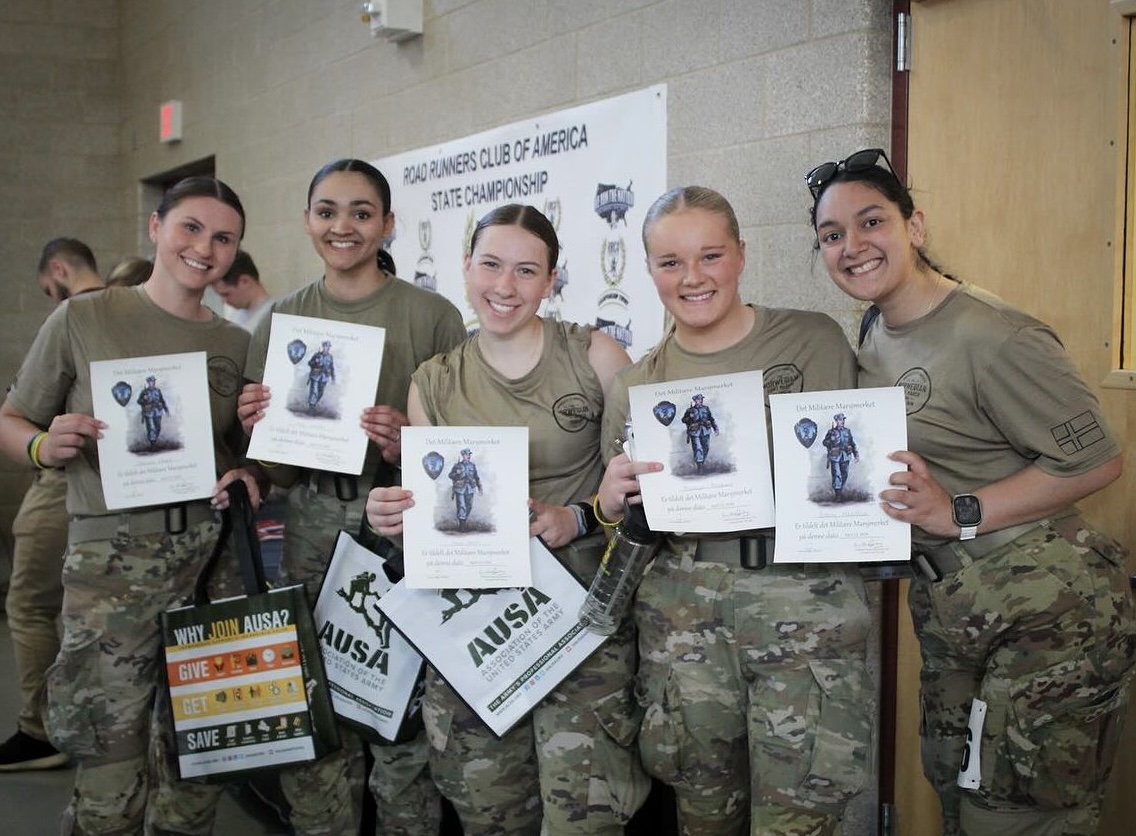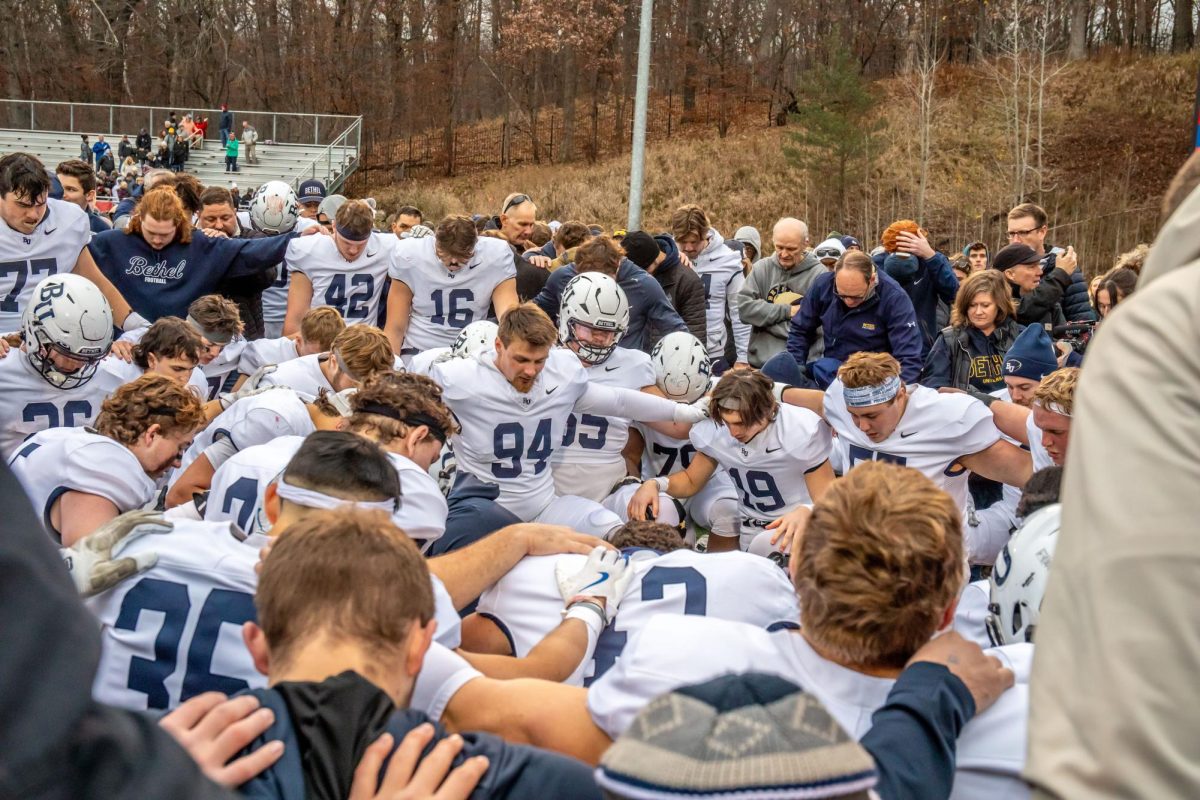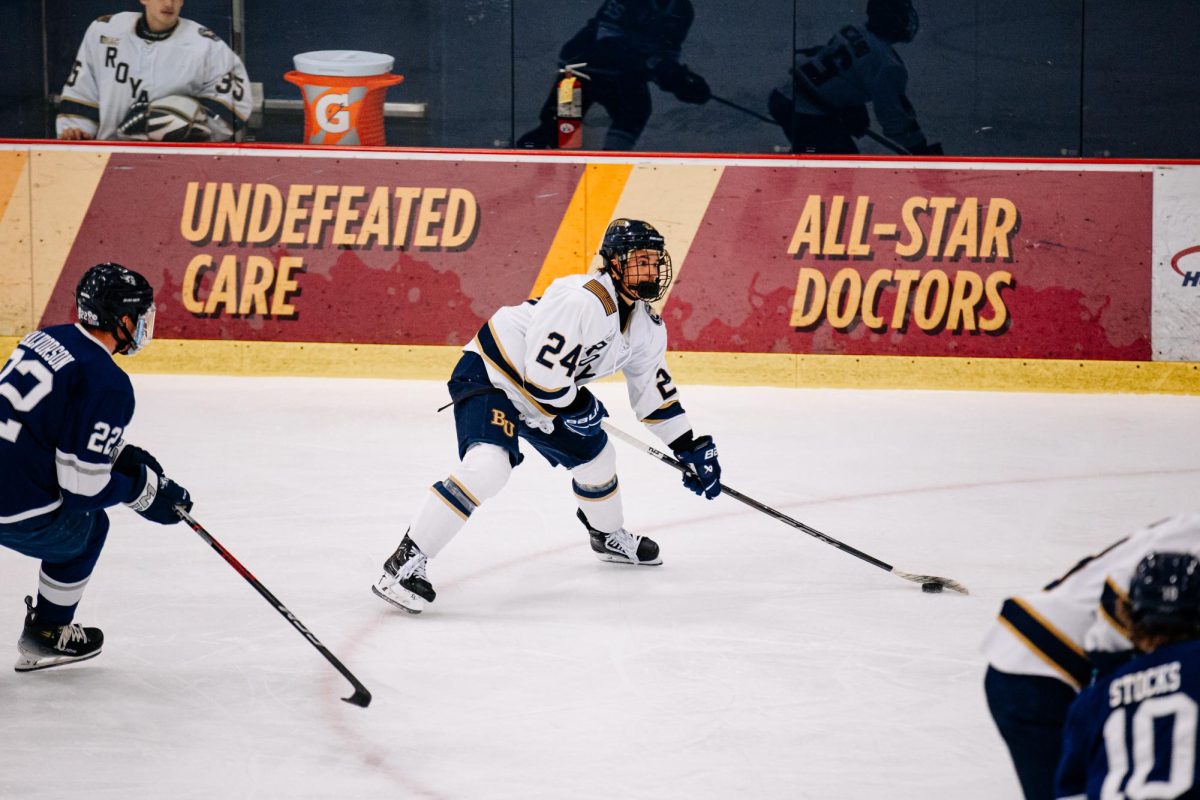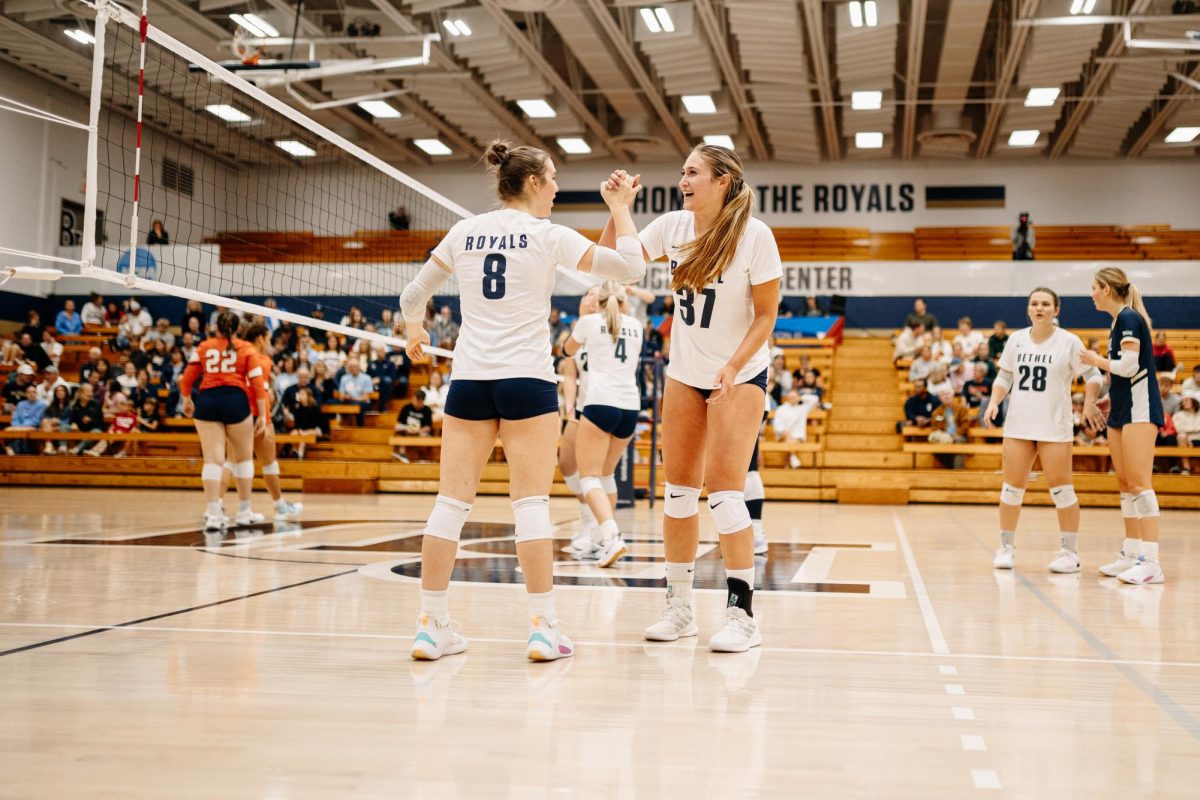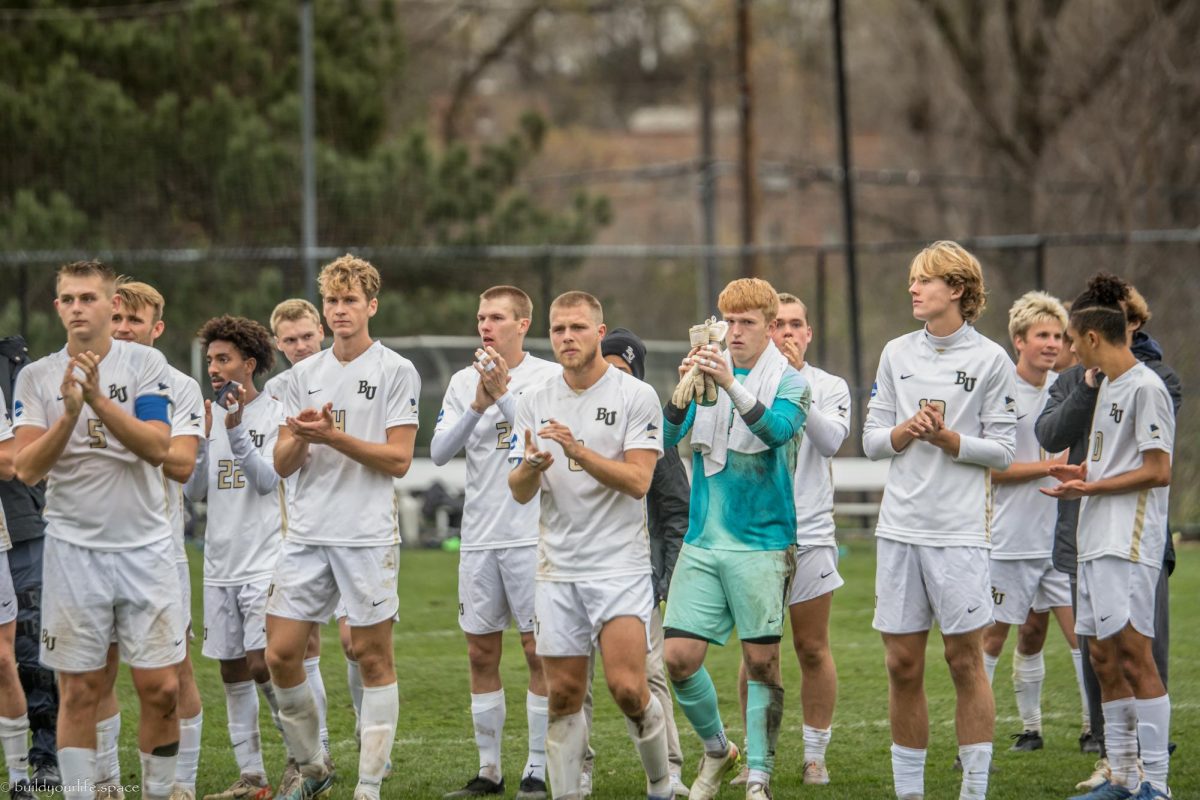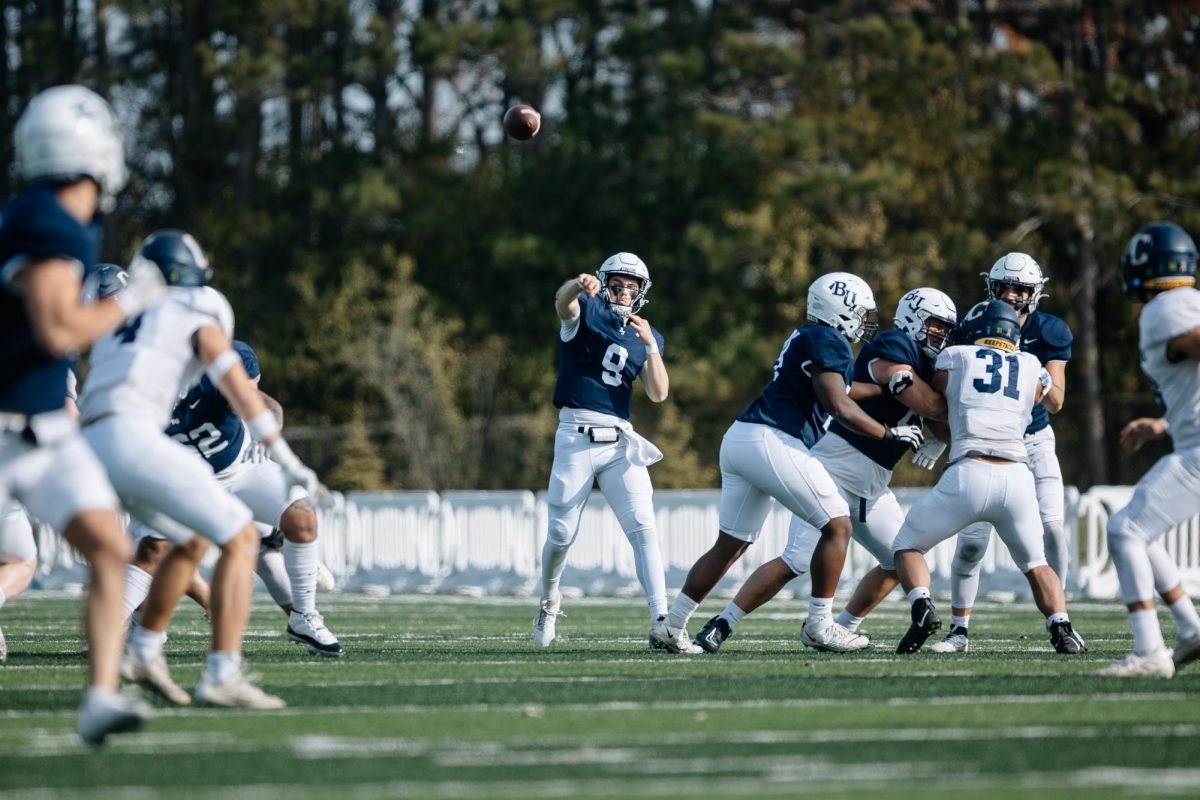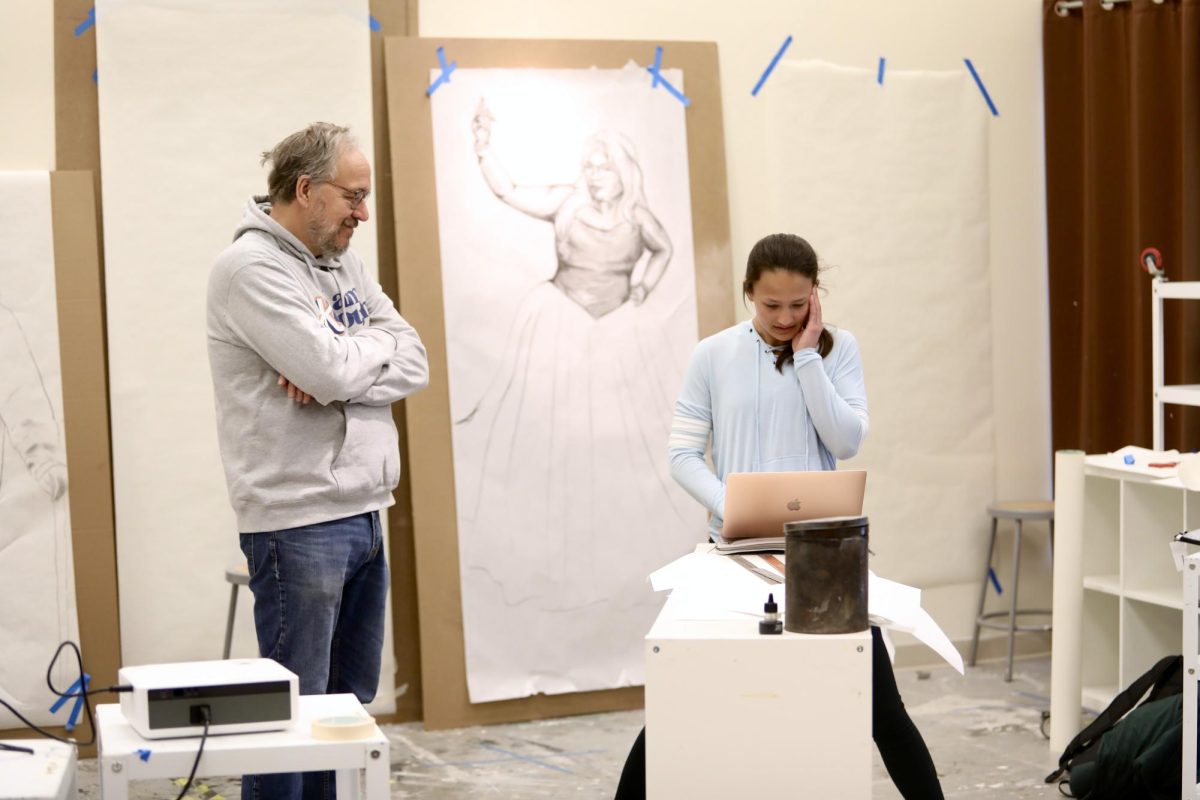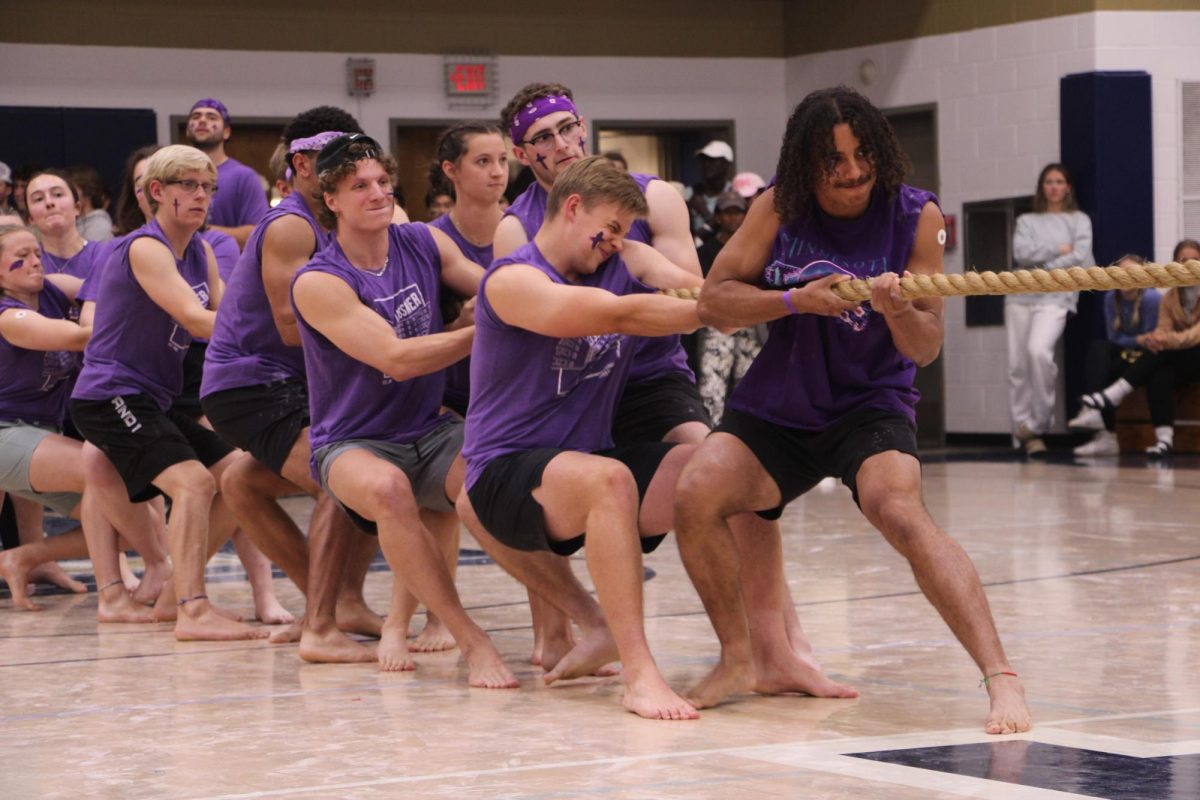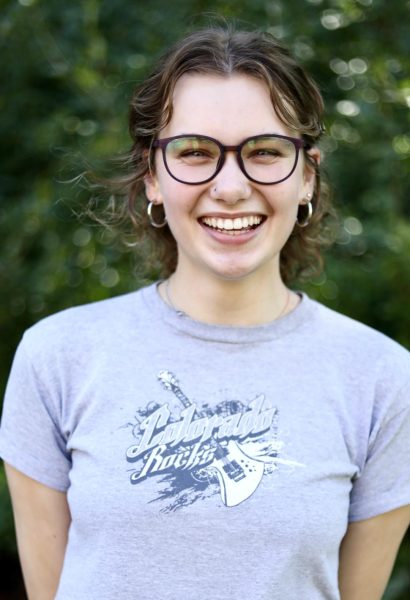Growing up, Annah Chriske had always enjoyed making art. As a kid, she’d draw all sorts of animals and people. In high school, she focused more on human faces and painted portraits – but was always told to make sure drawing and painting stayed a hobby.
Time and time again, Chriske was made aware by family, peers and teachers that art was not a viable career path.
But now, Chriske, a senior at Bethel University, will graduate in May with bachelor’s degrees in biology and art.
When it comes to choosing a major for college, many are told to not take the creative route. But at Bethel, creative departments have taught their students more than just how to make a clay pot, draw a good face or even paint the perfect stroke.
“My painting professor Amanda Hamilton was a great mentor for me,” Chriske said. “I learned so much by being able to just talk to her and seeing how passionate she was about painting.”
Along with professors, students at Bethel have access to the Career Development and Calling team. Director of Vocation, Pathways and Partnerships Stan Thompson and his team help current and former students figure out different jobs and paths to take after graduation. They do this by encouraging students to seek out the faculty in their department to have those one-on-one conversations.
The staff also provides resources such as finding alumni connections, plugging students into communities with relations in the field they might pursue and career and interest assessments. They also help with more technical things, such as learning how to write a good résumé and cover letter, how to use LinkedIn and networking, internship search strategies and interview preparation.
Thompson graduated from Concordia University with a B.A. in music and an emphasis in guitar performance. He never thought he’d end up at Bethel in 2021, graduating with an MBA and then coming back to work in his current position. After undergrad he spent a few years as the guitarist for a band called Crosseyed before going on to have jobs unrelated to music — banking, churches and nonprofits. With all these new experiences, Thompson was able to see that his major didn’t just teach him how to play good music.
“I found later that creativity is really highly valued,” Thompson said. “When I got into these roles, I was starting to ask questions and come up with ideas because that’s what you do in the creative arts. And I was doing that in environments where that didn’t happen a whole lot.”
His story has been used to help encourage students that no matter where they go after graduation, everything will be OK in the end.
“If you’re following God’s lead, surrounded by a community with people who know and love you and asking, ‘How can I use myself for God’s glory?’” Thompson said. “With that and a few technical things like writing a résumé and being good at interviews, the career path will work out.”
Chriske was in need of that special community — she just didn’t know she’d find it at college.
When it came to choosing where to go for college, Chriske had no schools in mind. She was a first-generation college student and the youngest of nine siblings, so college didn’t seem like a possibility financially. She knew if college was something she wanted to do, she’d have to find her own way in.
Along with drawing and painting as a kid, she enjoyed learning about science and how surgeries worked. Chriske knew that if she went to college, she’d study biology. In her family’s library sat an old, thick medical book that she’d read from cover to cover, full of information about home medicines and diseases. With this interest and the idea that art would lead her nowhere, Chriske thought biology was the way to go.
Bethel was the only college she applied to.
Chriske lived in the small town of Monroe, Wisconsin and nearby was the city of Oshkosh, where every summer a Christian music festival called Lifest took place. One year at Lifest, Chriske saw a booth advertising Bethel and thought it looked good enough for a school. She applied and got in — she just needed a way to pay for it.
So Chriske joined the Minnesota Air National Guard.
When Chriske first came to Bethel, she was studying biology to become a medic at the Guard and allowed herself to have a minor in art. It wasn’t until her sophomore year, when she began to take more art classes, that she realized she wanted to pursue her passion for art in more than just a minor. With Hamilton’s support, she declared a second major in art with an emphasis in painting.
“I felt more mentally sound when I had both majors,” Chriske said. “I found that I am the most successful when doing both … I get a lot of fulfillment from both.”
Now Chriske, in her last semester at Bethel, has learned both how to improve her painting and that it is possible to make a career out of art.
“I think what sets apart Bethel’s art department is that they really stress how you can be a successful artist,” Chriske said. “It’s something I’m very grateful for.”
After graduating, Chriske plans to go to physician assistant school to fuel her love of serving others. She also hopes to get a studio and create her own art to sell and present in galleries.
—
Michelle Wingard had known since she was a child that she wanted to be an artist. This made her parents nervous. With a father in business, Wingard was always given job ideas that involved art but were still financially lucrative.
“I always knew what I wanted to do,” Wingard said. “But that question is real. ‘How do you end up making money if you’re not 100% sure that you can sell art?’”
Wingard is now the gallery director for Bethel’s two on-campus galleries and has been a professor for 16 years, helping students figure out their futures.
“There’s something really incredible about thinking about the possibilities of being an art major of any kind,” Wingard said. “There’s this misconception that there are no creative jobs … but what we in the art department are learning is creative thinking, entrepreneurship and thinking about creating things that we want to see in the world.”
Wingard believes that when it comes to thinking about what to do after graduation, students should consider what brings them joy. In classes such as Professional Practices, students take the time to explore all the different jobs they could do and are of interest to them. It’s a way for students to learn more about the artistic field and about themselves.
“If you follow your gifts and do the things you feel fulfilled by,” Wingard said, “eventually all of it will lead somewhere. Work hard and be curious. When we think we have it all planned out, the surprises are what usually bring us the most fulfillment. This is all the beginning. The beginning of anything is scary.”






